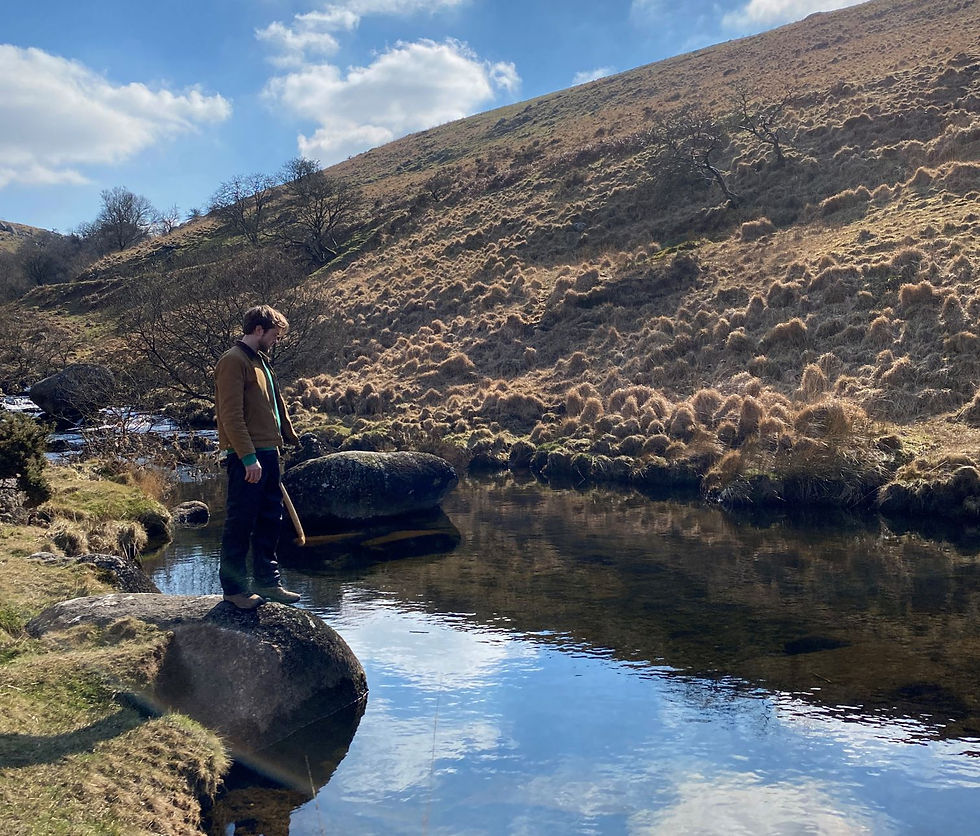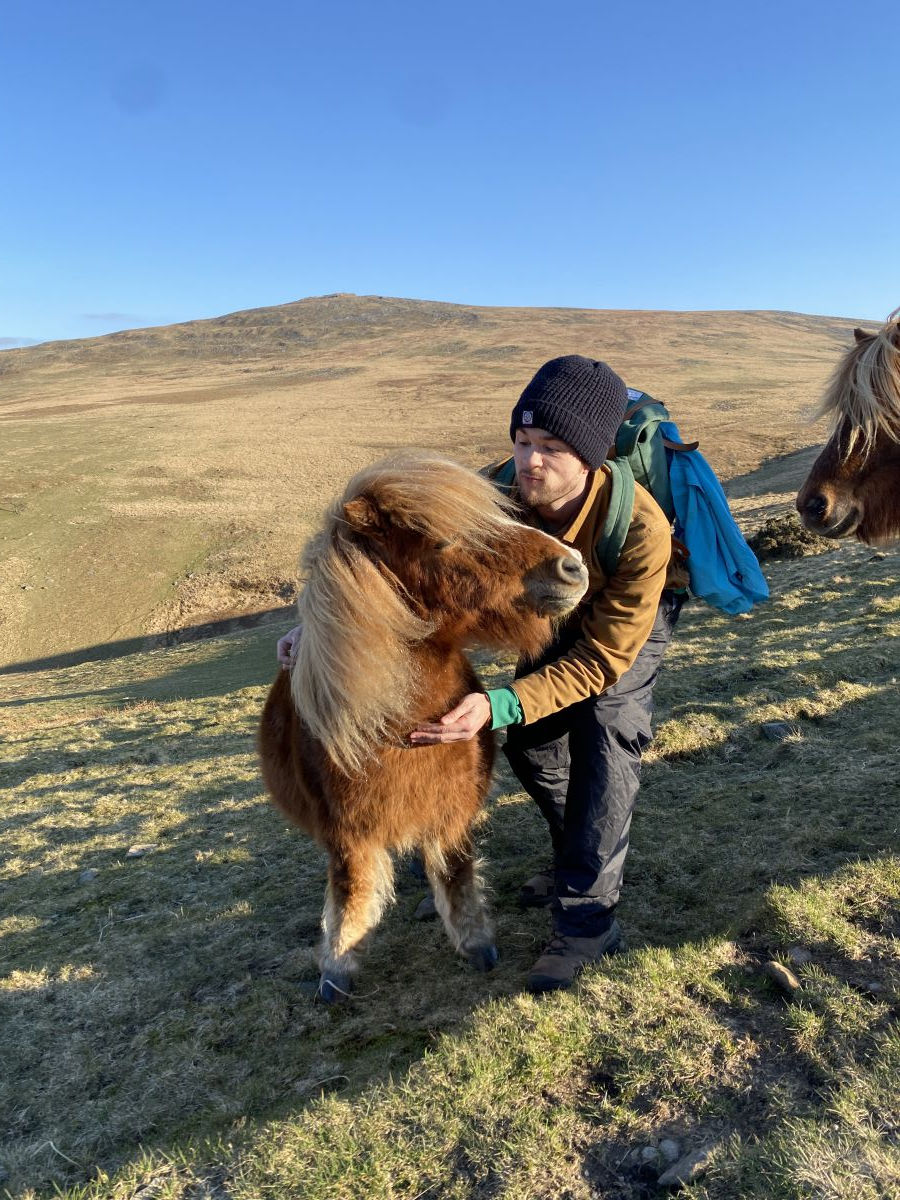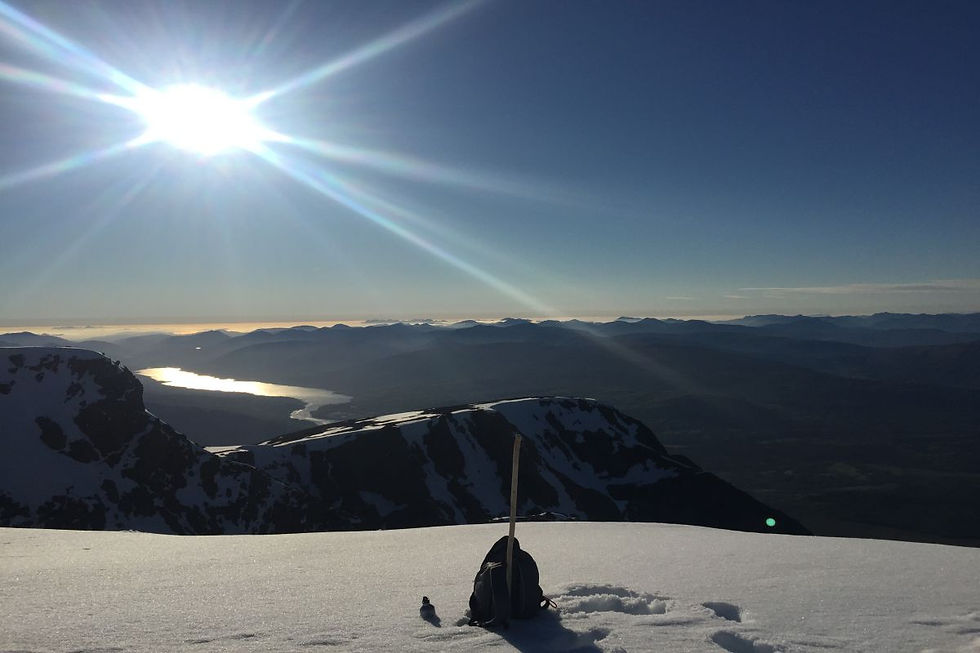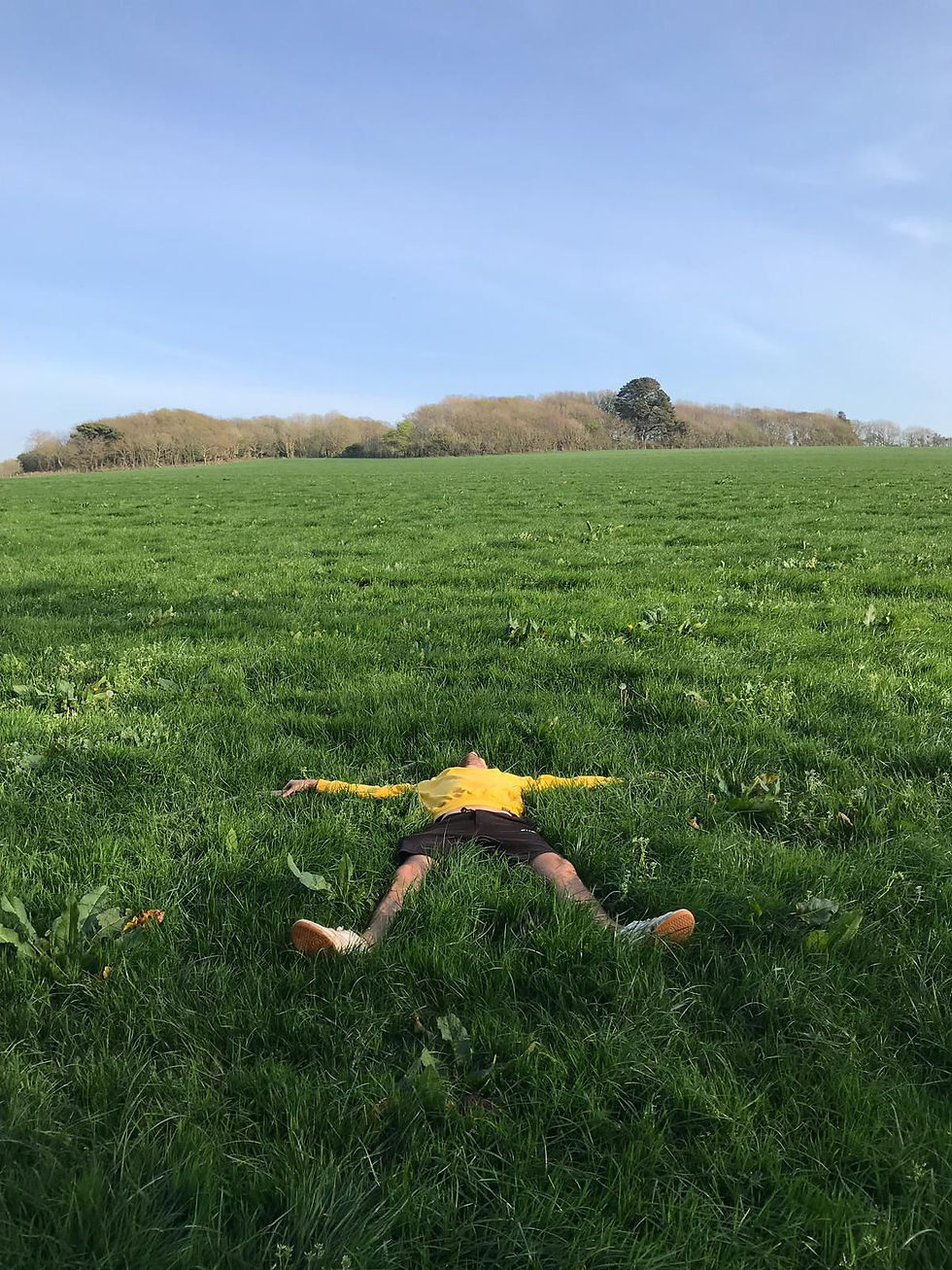Do you know that feeling when you finish a great walk and are feeling pumped, but at the same time you wonder where the time went; as you travel home, you have a deep-seated hunger for more; and the adventuresome itch that got you out here in the first place feels a bit unscratched? I know that feeling well, and I’m sure many others do too.
There are lots of reasons for us wanting to be outside in the first place. Discovering new places, a change of scenery, escaping the hustle & bustle of daily life, making space for the mind to breathe, reconnecting to our ancestral surroundings long before we invented bricks and mortar, or simply longing to feel good. All of these lend themselves to moments in which you can stop and really appreciate all this marvellous stuff that comes for free.

So in the interests of enjoying the benefits of nature as much as possible, I recommend you to the subtle and sometimes controversial activity that I call browsing.
Put simply, browsing is the act of taking extra time to appreciate things outdoors. You could also refer to it as soft fascination, conscious walking, or active faffing; but I think browsing fits best. The Cambridge Dictionary definition of the verb ‘to browse’ is: “To look through a book or magazine without reading everything, or to walk around a shop looking at things without intending to buy anything, or without knowing exactly what you want to buy.”
In other words, seeing what’s there and stopping to investigate anything that catches the eye. You didn’t come for anything in particular: you’re just seeing if anything really takes your fancy. In England and Wales, 'browsing time' is the name given to the archaic rule whereby shops may open 30 minutes early on a Sunday, during which customers may not make any purchases but only spend their time looking at what’s on the shelves, in an enforced period of mooching around. Did you know that? In fact, when was the last time you actually turned up to do any shopping 30 minutes before the shop opened on a Sunday…?
Anyway - I think this act applies well to outdoor activities too, although I extend it to cover all the senses, not just sight. For me this might be stopping to really goggle at a view from a summit, search an area for foragables, smell some nice flowers, soak up the history of a place, a quick paddle in a stream, or even stopping for a snack break. When you’re browsing, you don’t know what’s going to take your fancy - that’s the ‘soft fascination’ that creates space for the mind to breathe while promoting gratitude.
The reason I say this is controversial is that in my experience, this philosophy of ‘stopping to smell the roses’ goes against the norm. I think that walking is often seen purely as an A to B activity in which the point is to walk far and fast, perhaps with a personal best time limit. I have distressed my companions on more than one occasion when I have stopped to investigate an old building or talk to a horse. I’m not suggesting that you don’t walk fast, but I suggest you don’t spend your entire walk focusing on walking fast.

Even when planning a walk, most guides only give an idea of how long the walk will take if you do it non-stop at average speed, or maybe with a 10 minute lunch stop. Don’t get me wrong, I can walk fast when I need to, and I like to cover lots of ground; but I always like to allow for some browsing time when planning my walk. Maybe an extra 15-30 minutes for every 2 hours walking time - depends on the walk, who I’m with and what I can get away with. I don’t set out to browse anything in particular, but I know there will always be something to fascinate me, and I don’t want to feel rushed.
If you don’t know what I mean, think about the last time you stopped to count the rings on a tree trunk, appreciate the changing shape of a cloud, or notice the way a fern unfolds (I recently found that ferns have little spots on the underside of their fronds, which hold their spores and is how they reproduce) If this sounds boring, or you can’t recall the last time you did so, it may well be because you have become attuned to bells and whistles and little red notifications on your phone, like the rest of us. And how can we be blamed? Constant bombardment by telly, news and Facebook newsfeed videos of 30 Ways To Hack Your Next Wedding Cake have desensitised our dopamine receptors to unnatural proportions. Attuning yourself back to these small pleasures in nature will not only help you to marvel at the natural world, but also to adjust your attention span and increase your satisfaction.
"But the beauty is in the walking; we are betrayed by destinations." - Gwyn Thomas
This is the secret of browsing: it flies in the face of the everyday compulsion in life to always be doing stuff. Many of us feel the craving to return to nature because we are aware of the hangover wrought by the industrialised mindset of productivity, goals and results. I spend my working week trying to be as productive as I can so I can succeed in my job. Taking time out in nature at weekends helps me to relax, unwind and alleviate the stress that builds up over the week. However, it is easy to accidentally carry this mindset over into the weekend, and see my adventure as just one more thing to be completed before moving onto the next task. I’m sure I’m not alone in knowing that feeling well! It’s like eating lunch while thinking about dinner (I bet you know that too) - sometimes it’s good to stop, savour and appreciate. Hence the allowance of browsing time.
For me, one of the essential advantages of being outside in nature is a chance to break the habit of always being ‘on’. Just go for a wander, let your mind go for a wander, and see if something fills you with wonder. I guarantee that’s how you’ll reap the benefits of nature that are so frequently talked about.
After all, it’s not often you’re able to be in places like this. You may spend most of your time indoors, rarely get out of the city, or have spent a great deal of time and effort getting to this rare spot. So take time to enjoy what you came for. You may wish to stop and enjoy sweeping majestic views, wishing to be rooted there for hours until the urge takes you to continue. I mean, just look at it. They put this stuff on postcards and screensavers. People pay a lot of money to travel from abroad and look at this.

Or, less grandiose but no less beautiful, are the small details. The inside of a flower. The patterns of veins on a leaf. The light dappling through the trees (komorebi). The fresh damp smell that comes after rain (petrichor). The satisfying shup noise made by rocks when you throw them in mud. A trickling stream, flowing river or rhythmic waves. Staring up at the sky through the leaves. The patterns on rocks. Listening to birds talk to each other. Watching dogs. Watching clouds. Wondering how squirrels hang onto trees like that. Reflections in puddles. Sitting on a memorial bench. Seeing what’s in a hollow tree. Laying down spread eagled on the floor.

Active appreciation of details is one of my secrets to a good walk, and a good life. It’s an active form of gratitude, which is as close to a universal silver bullet for happiness as we’re going to get. I think Alan Watts puts it very well:
“What I would call concern, instead of this sort of frown, is something more like amazement. In other words, that existence is extremely peculiar; a feeling that it’s all unbelievable; it’s amazing. I wonder at it, I marvel at it; it’s a miracle that there is anything. That feeling of marvellousness of being is what I call concern; and also love.”
Yes indeedy. We could all use some more love and amazement. So if we’ve established that browsing is all well and good, how do we do more of it?
To best get into the mind frame for browsing, and indeed to get the full benefits of nature, you need to be present. If you’re thinking about the past or future, you’re not in the present. If you’re on your phone or taking photos, you’re not in the present. In fact, I find that when I’m walking fast and concentrating on putting one foot in front of the other, I’m not in the present. It’s fine to do all of these things when you’re out of course, but if you spend the whole time doing them, you will ‘miss out’ on the lion’s share of your walk and likely feel unfulfilled. I know I do when it happens to me.
If you are present, you will appreciate your adventures more and you will appreciate your life more. I think about my walks like I think about my life: the point is the journey, not the destination. The true pleasure isn’t in the finishing, but in the process. You don’t listen to music to get to the end of the song; you enjoy it as it unfolds. The same goes for dancing; you don’t know what’s going to happen and that's ok; you do it for fun and love! Make sure you enjoy the music of nature, and play your part by getting involved in the dance. Here’s Alan again:
“You can’t love, except in the present. When you have under your hands a piece of wood, and you say ‘My, this has a gorgeous grain’ and you fondle it - you are loving it. It may be you have an apple in your hand, and you say ‘I love you so much I could eat you.’ And you eat it, and you relish it. That’s loving, in a special way.”

Another way of looking at this is that you are essentially trying to revive your inner child. Even in adulthood, your hidden childishness is the source of your wonder and fascination. Box this off and you box off a huge wellspring of inspiration in your life.
Now I’m not advocating that you Peter Pan it and never aim to grow up. Growing up is vitally important and I don’t just mean the passing of years. With maturity, you learn to take control of your life to appreciate it in an all new way. But as far as I’m concerned, real maturity comes with the confidence to retain your immaturity in just the right amounts. The art of growing up is in choosing how you want to grow, and choosing which bits of yourself to clear away to make room for the new ones. Like a bonsai tree, you need to prune off the old bits so the new bits have room to grow. If you don’t actively make the choice, it’ll happen anyway: you’ll be left with deadwood and less room to grow, with life buffeting you around as a result. Or you’ll try and find fulfilment by spending obscene amounts of money on a television with ultra high definition screensavers that are still inferior when compared to the world outside your window. So find ways to keep your childish wonder alive as part of your ongoing journey into maturity. What better way to do that then to rekindle a childlike amazement with the things we take for granted in the natural world?
The next time you find yourself outside, I recommend that you give yourself permission to slow down and enjoy your surroundings. You might not walk as far or beat your personal best, but I promise it’ll leave you feeling better.
"As you walk down the fairway of life, you must smell the roses, for you only get to play one round." - Ben Hogan
Comments